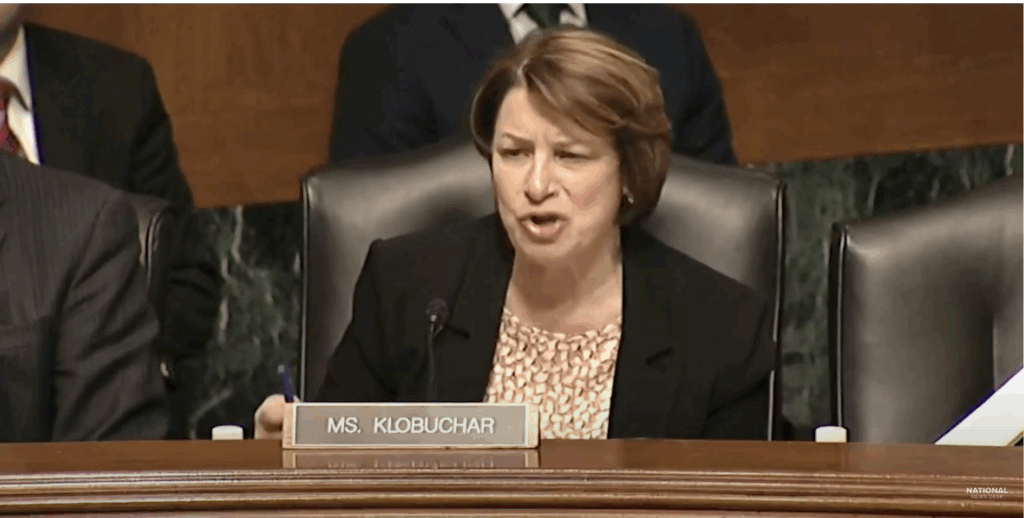Senator Amy Klobuchar of Minnesota is calling for legislation to address the growing issue of AI-generated deepfakes after a satirical video falsely attributed outrageous comments to her regarding actress Sydney Sweeney. Klobuchar's response comes amid a broader debate about the implications of such technology on free speech and political discourse.
Explainer Federal Court Blocks Religious Exemption For Contraception Mandate
In an opinion piece published in the New York Times, Klobuchar clarified that she never made the statements depicted in the video, which portrayed her making vulgar remarks about representation in political advertising. The video, which went viral, featured a doctored version of Klobuchar speaking at a Senate committee hearing, making absurd claims about the Democratic Party's image.
"This is a hoax that undermines the integrity of our political process," Klobuchar wrote. She emphasized the need for Congress to pass laws that would prohibit the creation and distribution of harmful AI-generated content.
Critics of such legislation argue that it could infringe on free speech rights. Ryan Bangert, senior vice president for strategic initiatives at Alliance Defending Freedom, remarked, "Isn’t the whole point of a campaign to harm the electoral prospects of a candidate? It’s outlawing politics, basically."
Last year, Hawaii's legislature passed a bill imposing penalties for posting digitally modified content that could harm a candidate's reputation. This law has faced legal challenges, with ADF representing individuals opposing the measure. Bangert noted that a federal court issued a preliminary injunction against a similar California law, citing First Amendment protections for parody and satire.
The controversy surrounding deepfakes has intensified as political figures and organizations grapple with the potential for misinformation. Klobuchar's call for action reflects concerns that such technology could be weaponized against candidates, distorting public perception and undermining electoral integrity.
"We’re used to getting pulled over by the joke police," said Seth Dillon, CEO of The Babylon Bee, a satirical news site involved in the legal challenge against the Hawaii law. Dillon's comments highlight the tension between political satire and the legal ramifications of AI-generated content.
Internationally, similar concerns are arising. The European Union's Digital Services Act, which aims to regulate online content deemed harmful, has drawn criticism for potentially stifling free speech. Bangert pointed out that the act imposes strict mandates on social media platforms, requiring them to remove content flagged by designated reviewers.
As the debate continues, Klobuchar's stance underscores a growing recognition of the challenges posed by emerging technologies in the political arena. The implications of deepfakes and AI-generated content are likely to remain a contentious issue as lawmakers seek to balance free speech with the need to protect individuals from misinformation.
The outcome of ongoing legal battles and proposed legislation will be closely watched as the intersection of technology and politics evolves in the coming months.
Why it matters
- Klobuchar's call for legislation highlights the urgent need to address AI-generated deepfakes that threaten political integrity.
- The viral deepfake incident underscores the potential for misinformation to distort public perception of political figures.
- Debate over regulating deepfakes raises concerns about free speech, reflecting broader tensions in political discourse.
- Legislation could set a precedent for how technology impacts electoral processes and candidate reputations.
What’s next
- Klobuchar plans to introduce a bill targeting harmful AI-generated content in the coming weeks.
- Ongoing legal challenges to similar laws in Hawaii and California will influence future legislative efforts.
- Watch for reactions from free speech advocates as the debate over deepfake regulation unfolds.
